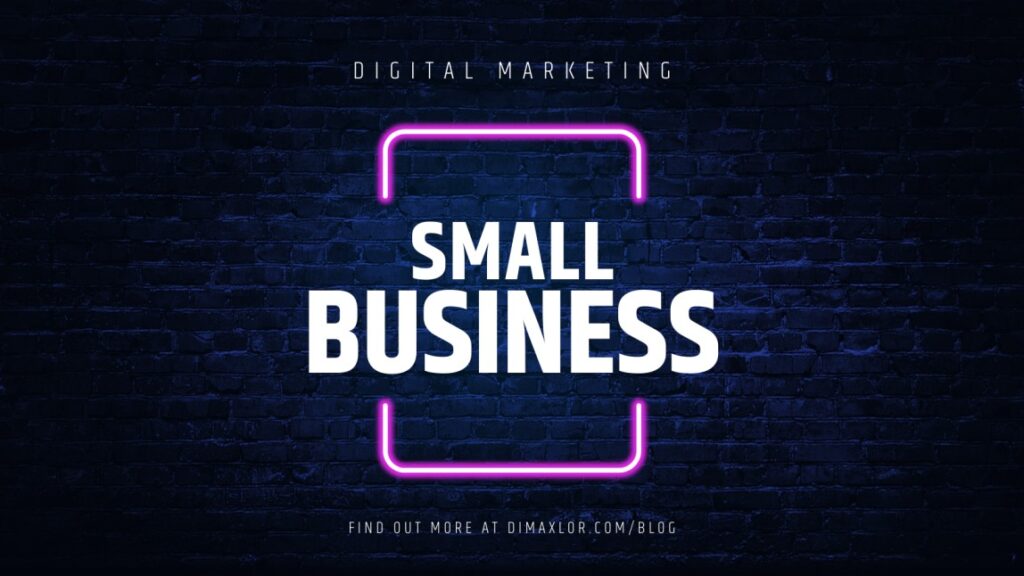Understanding Traditional and Digital Marketing for Small Businesses
Traditional Marketing
Traditional marketing is one of the oldest forms of marketing and is tried and trusted by all types of businesses. It uses offline modes of communication like print, billboards, broadcast, emails, and phone. Businesses use traditional marketing to reach a large number of customers.
There are a few drawbacks of using Traditional Marketing.Traditional marketing cannot provide a level playing field for competition. Bigger businesses have an advantage over smaller businesses in dealing offline. Measuring Return On Investment (ROI) using tradition marketing is difficult and sometimes not possibe ex. views on billboard.



Digital Marketing
Traditional or Offline marketing is fast being replaced or combined with Digital Marketing. Companies look for innovative ways to reach their business goals. One such key strategy for reaching business goals is Digital Marketing.
Digital marketing is a process of building brand awareness of a product in the minds of the audience through the use of the internet. Digital marketing has evolved rapidly as compared to traditional marketing in the past few years.
Importance of Digital Marketing for small businesses
- It provides a level playing field for small and big companies.
- If we compare costs, digital marketing is less expensive.
- It gives local and global reach.
- Results are measurable with precision.
- Better returns on investments are possible, as purchases are just a few clicks away.
- Digital marketing strategies help small businesses to build brand awareness and visibility
What are the types of digital marketing strategies for small businesses?
Let’s look into the types of digital marketing strategies:
Search Engine Optimization (SEO)

image courtesy: Neil Patel
Search Engine Optimization (SEO) is a term that refers to organic or non-paid forms of communication. Small businesses can use SEO as it helps in building trust and awareness.
SEO are of three types mainly:
On-Page
On-page is related to content on the website and its structure. Titles and headings on your website are a good example of Onpage SEO. Relevant and informative content with right titles and headings can give you a good ranking on search engines.
Off-page
Off-Page is the way companies get recognized by people and businesses around them. Backlinks are important in Offpage SEO. A reference to your website from another website or mention of your business on a digital magazine, in webinars, events, etc earn you backlinks. Even links from your social media post or other post are a part of backlinks and Offpage SEO.
Technical
Technical SEO looks into the user experience part. Here we look into the functioning of various pages and elements on it. Elements like Navigation (menu tab and buttons), Visual displays( images) ,Content( text), etc play an important role in SEO.
Technical SEO makes sure every element is functioning in the right way and the website is optimized and user-friendly for devices and browsers. And not to forget the time it takes for the site up and running.
So overall On-page, Off-page, and Technical SEO help a business in ranking the content higher on Search Engine Ranking Pages(SERPs)
To know more about SEO please visit: WHY SEO IS IMPORTANT FOR BUSINESS IN 2022
Email Marketing
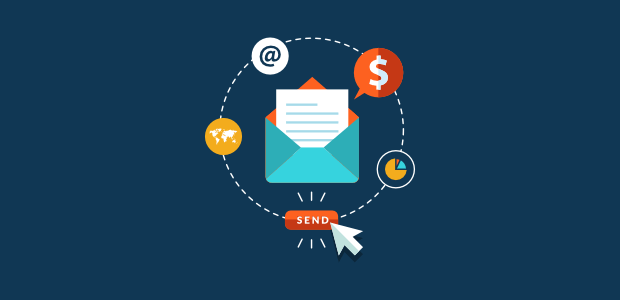
image courtesy: optinmonster
Email Marketing is the best and most cost-effective strategy for reaching an audience and creating brand awareness. Email Marketing helps in the personalization of messages as per the segmented audience type.
It assists businesses in serving audiences based on their buyer’s journey i.e messaging at awareness, consideration, and decision-making stages. Email Marketing as a digital strategy can outperform other forms if used in sync.
There are several email marketing automation tools available for reaching the target audience, converting leads to sales, nurturing, and building loyalty.
To know more about Email Marketing visit: HOW TO DO EMAIL MARKETING
Social Media Marketing (SMM)

image courtesy : x-kart
Social Media Marketing (SMM) is a strategy to build awareness through social media channels. There are more than 10 popular social media channels with millions of users. Some of them are Facebook, Instagram, Twitter, LinkedIn, Pinterest, Youtube, Whatsapp, Snapchat, Tiktok, and Telegram.
Better creatives and scheduled posts can attract more audiences to your website. Ways of conversation with your audience are different on different platforms. For example, LinkedIn conversations are professional while Facebook conversations are more casual.
Organizations should focus on niche topics and try to publish content in relevance to it. Organization goals are achieved through effective targeting and delivery of informative and relevant content on social media channels.
Social Media Marketing tools can help businesses in creating, scheduling, and posting content, for engagement with audiences. Social Media Marketing is an integral part of digital marketing and every business should make use of it for achieving organizational goals.
To know more about Social Media Marketing visit: HOW TO DO SOCIAL MEDIA MARKETING
Content Marketing
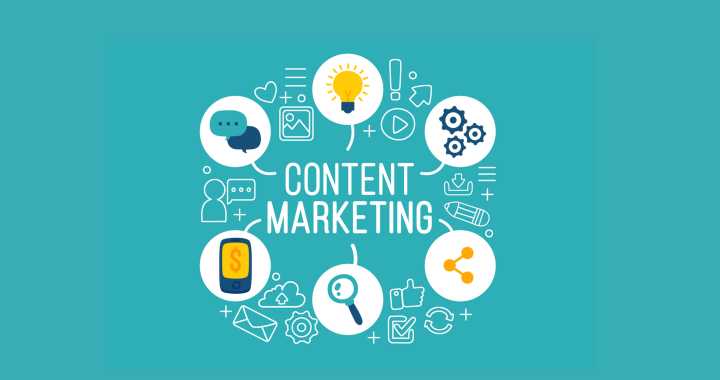
image courtesy: Quora
Content Marketing is the use of blogs, infographics, videos, posts, e-books, and other formats for conveying relevant messages to the audience.
Content is King and to be successful, businesses need to create informative, engaging, and relevant content for the audience.
One important technique to be successful in content marketing is consistency. Too much content is not good nor is too little, so the frequency of content publishing matters.
Along with frequency, the timing of publishing is also important. If timed incorrectly, it will affect the visibility and conversions of leads. Content Marketing is the most essential technique of creating brand awareness in the audience.
To know more Content Marketing visit: CONTENT MARKETING STRATEGY
Pay Per Click (PPC)

image courtesy: startup nation
Pay Per Click (PPC) is a paid form of communication used by businesses to attract, and engage audiences. PPC is an alternative term used for paid advertisements like Google Ads.
Small businesses can promote their products or services through PPC and reach a target audience. Business goals can be achieved through paid forms of communication if channelized in an effective direction. For example, Google ads have several forms of advertisements like Search, Display, Video, Shopping, and App.
Search and Display ads help small businesses to reach a wider audience. Video ads are displayed on Google properties like YouTube for a few seconds to attract and create awareness. Shop ads focus on interested shoppers who are searching for products on Google, and App ads direct the audience to the google store for app installations.
To know more about Google Ads visit: WHAT IS GOOGLE ADS
Mobile Marketing
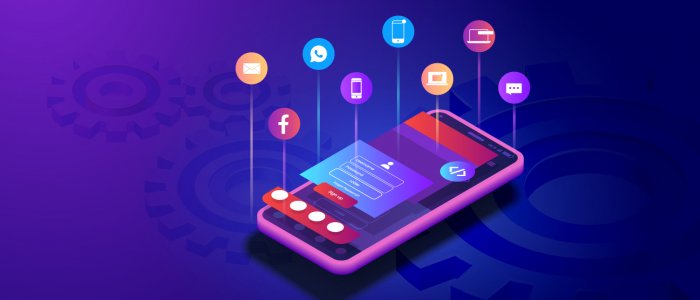
image courtesy: webengage
Mobile Marketing promotes products and services through mobile devices like smartphones and tablets. App-based marketing, In-game mobile marketing, mobile search ads, mobile display ads are a few types of mobile marketing.
Mobile Marketing focuses on behavior and not on demography. Businesses can send time and location-sensitive content to the audience. But as privacy concerns are rising the use of mobile marketing would be limited to permissions allowed by the users.
Google, Facebook, and other channels can be used for mobile marketing campaigns. Small businesses should focus on clear, concise, and relevant content, be local, use different mobile marketing strategies, and check their performance.
Affiliate Marketing
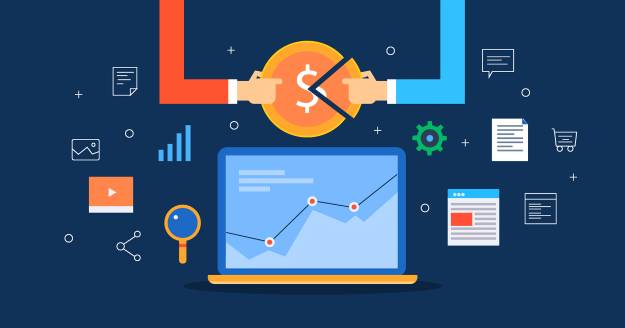
image courtesy: monsterinsights
Affiliate Marketing is selling other businesses’ products for a commission. This type of marketing is quite old and is practiced widely across the world. It involves a product, an affiliate, and a consumer.
A product is made available for sale to customers. An affiliate uses the product page link on his/her blog, website, social media, or other digital marketing channels and redirects customers to the product page. A customer buys the product. The affiliate gets a commission for the sale.
Influencer Marketing
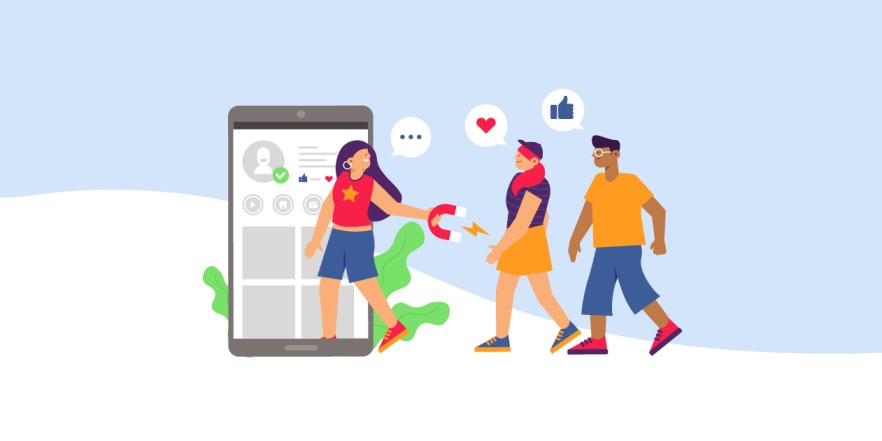
image courtesy: Publir
Influencer marketing is a strategy to attract an audience through a partnership with influencers like celebs, experts, etc.
Influencers promote content with your brand message to their followers. And followers buy you products based on what the influencer promotes/recommends.
Simple but expensive affair for small businesses as certain influencers are not affordable. Small businesses need to consider the influencer background and prospects. As they will be associated with the brand, which is risky and challenging.
To know more about free digital marketing courses with certification please visit: https://dimaxlor.com/5-best-free-digital-marketing-courses/
